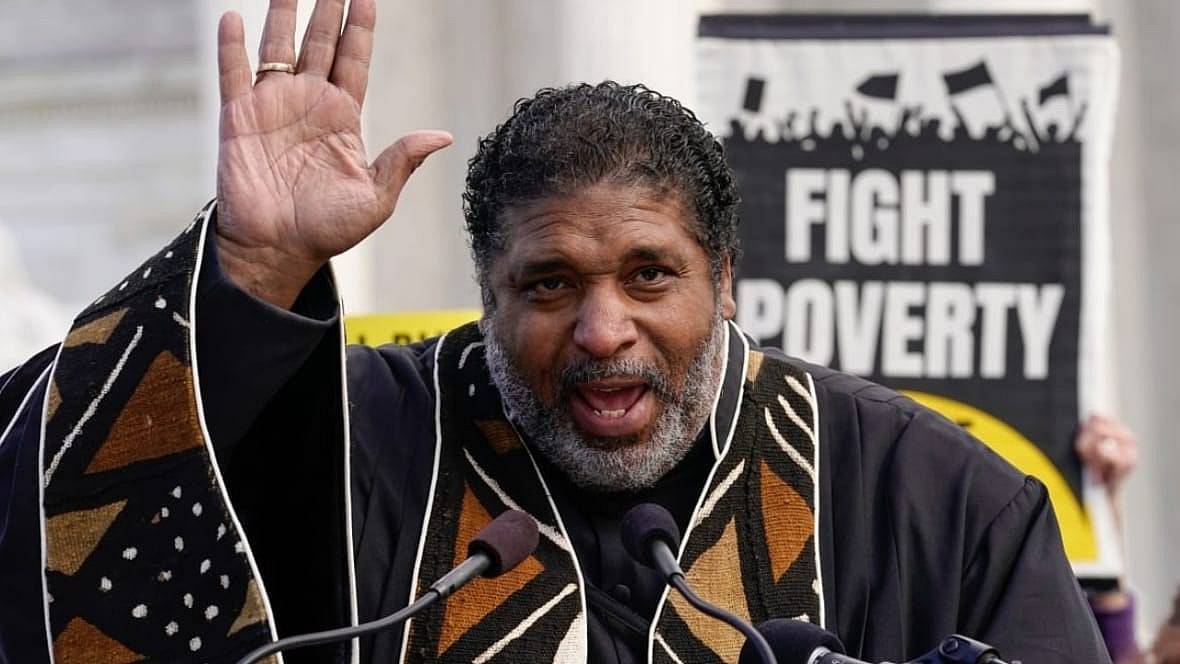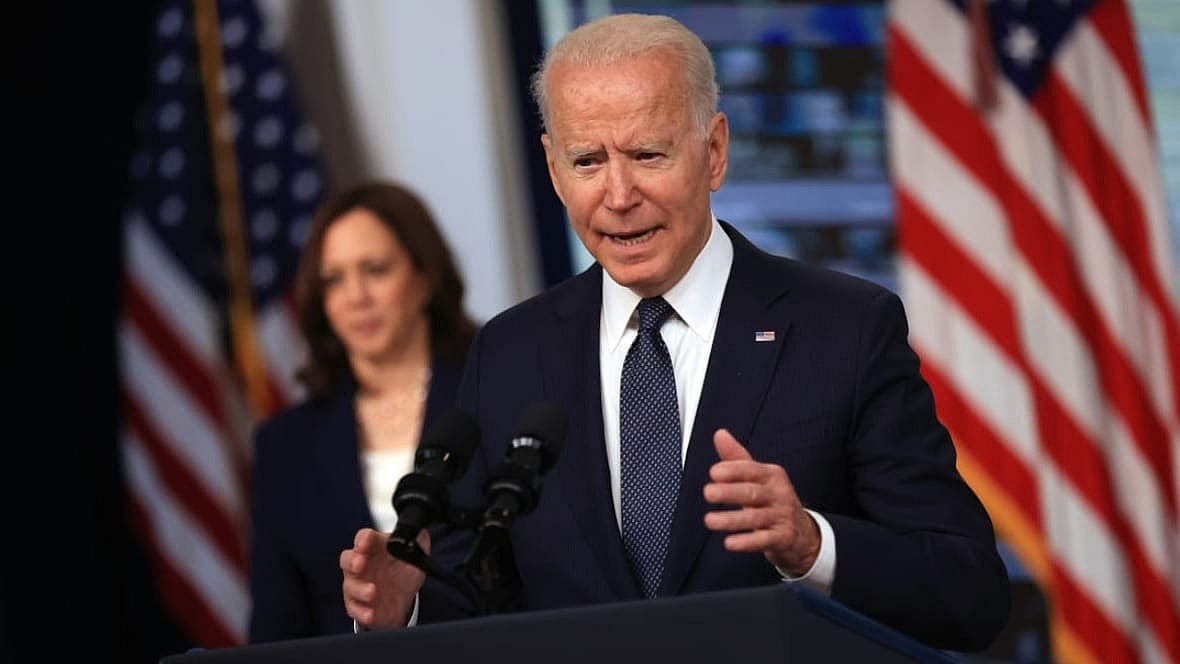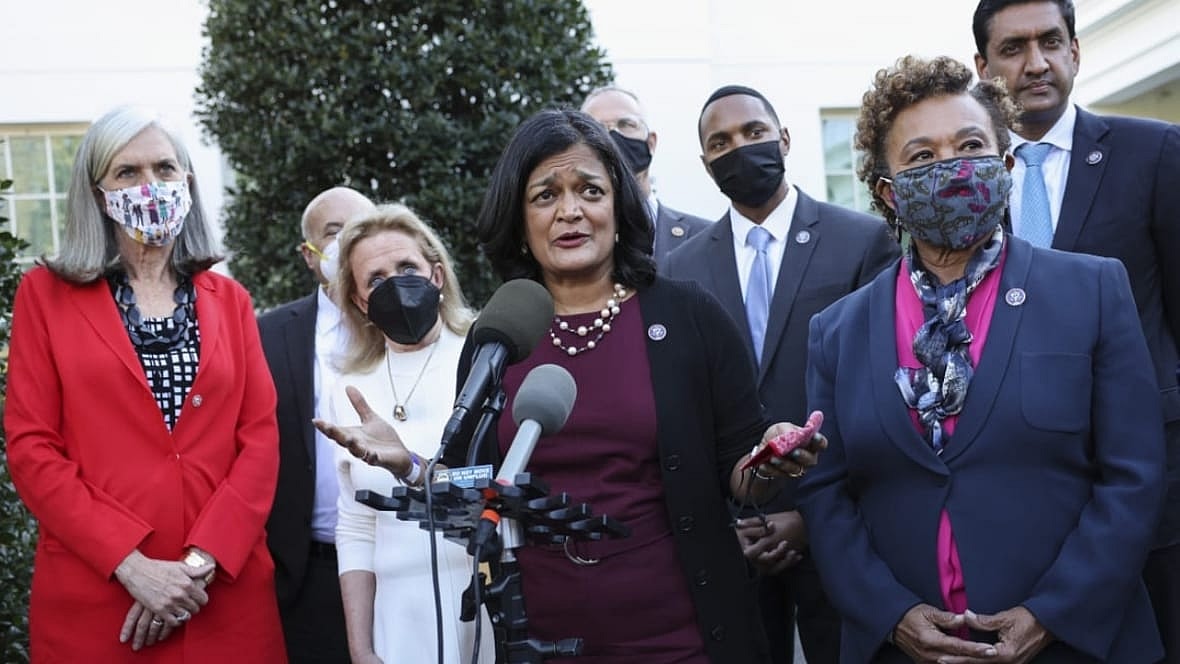The issue of poverty in the United States was spotlighted this week as hundreds of demonstrators took to the streets of Washington demanding that elected officials address what researchers say is the fourth-leading cause of death.
The three-day host of activities from the Poor People’s Campaign, led by co-founder the Rev. William Barber, culminated with a White House meeting on Wednesday, where he and other leaders expressed their concerns about persistent poverty levels – something Barber says “doesn’t have to be” and is “all fixable.”

“America’s got to face America’s death sentence, which is poverty,” Barber told theGrio. “It’s not even a really extreme thing that we have to do; just pay people a living wage, assure universal health care like the other 25 wealthiest countries in the world.”
Barber cited a January 2023 study that found deaths related to current poverty in 2019 were higher than deaths by homicide, gun violence, suicide and drug overdose. The study, published by the American Medical Association, found that when it comes to cumulative poverty, only heart disease, cancer and smoking had greater mortality.
In an attempt to sound the alarm ahead of the 2024 presidential election and as Congress remains in session until its summer recess in August, the Poor People’s Campaign held a mock funeral procession, starting from the Supreme Court to the U.S. Capitol building, highlighting poverty as a “death sentence.”
Activists, part of a coalition called Moral Poverty Action Congress, also descended on the Capitol to visit the House and Senate offices of more than 400 members of Congress, urging them to use their legislative powers to end poverty in the United States.
“Every night on the TV, you see stuff about homicide. Every politician runs [campaigns] about law and order and keeping the country safe,” said Barber. “Well, what about death of poverty?”
The social activist noted that poverty levels decreased during the COVID-19 pandemic due to targeted policies passed by Congress and signed into law by both former President Donald Trump and President Joe Biden, including the child tax credit, expansion of food stamps, other public assistance programs and Medicaid services.

However, now that the public health emergency has ended, and policy provisions designed to assist Americans during a once-in-century pandemic have expired, anti-poverty advocates say that progress is now being reversed.
“Now it’s going right back up because we’re kicking folks off Medicaid [and] taking folks off food stamps,” said Barber. “We have low unemployment but also low wages. That’s a combination for disaster when it comes to addressing poverty.”
There is some support for the Poor People’s Campaign’s agenda to substantively address poverty in America and its deadly consequences. Rep. Pramila Jayapal, D-Wash., chair of the Congressional Progressive Caucus, and Rep. Barbara Lee, D-Calif., joined demonstrators during a press conference Tuesday outside the Capitol.
On Wednesday, Barber and other leaders of the Poor People’s Campaign met with White House senior officials, including Stephen Benjamin, director of the Office of Public Engagement, domestic policy adviser Neera Tanden and senior adviser Mitch Landrieu.
According to a source who had knowledge of the meeting, the Biden officials talked about various pieces of legislation passed during the current administration to help alleviate poverty. The meeting was primarily a listening session to allow advocates to air their concerns and discuss what more can be done on a policy level.
After Wednesday’s meeting, Landrieu shared images from inside the listening session in a tweet.
“Lifting every American family out of poverty is a key priority at the heart of @POTUS’ Investing in America agenda,” tweeted Landrieu, the White House coordinator for the Infrastructure Investment and Jobs Act. “Meeting with @RevDrBarber, @UniteThePoor, & this courageous group at the @WhiteHouse was a reminder of how important our work is – and how much more we have to do.”
Following this week’s demonstrations and White House meeting, Lee and Jayapal reintroduced a resolution titled “The Third Reconstruction: Fully Addressing Poverty and Low Wages from the Bottom Up Resolution.”

The resolution draws on the history of the first and second Reconstructions following the Civil War and during the Civil Rights Movement, seeking to address the “converging injustices of systemic racism, poverty, public health inequity, militarism, white supremacist nationalist extremism, and aims to lift our society and economy from the bottom up.”
“Poverty exists because we allow it to exist. In the wealthiest country in the world, 140 million people are poor because we have allowed it to be so,” Jayapal said in a statement. “We must implement bold proposals that center the poor — providing housing, health care, climate justice, and equitable public education.”
Lee similarly said in a statement, “Our country stands at a tipping point: we can maintain the status quo, or we can choose to prioritize the needs and demands of the 140 million poor and vulnerable people, including children and families, who are one crisis away from destitution.”
Barber told theGrio that in addition to pushing the White House and Congress to act, he and the leaders of the Poor People’s Campaign aim to mobilize poor and low-wealth Americans across racial and religious lines ahead of the 2024 elections. “Most poor people don’t vote,” he noted, “because nobody talks to them anymore.”
“There’s not a state in the country,” Barber asserted, “if 20 percent of poor and low-wealth people who have not voted would organize themselves around an agenda and vote, that they could not fundamentally shift the electorate.”
“We need a third reconstruction movement in this country,” he added, “and we are that movement.”

Gerren Keith Gaynor is a White House Correspondent and the Managing Editor of Politics at theGrio. He is based in Washington, D.C.
TheGrio is FREE on your TV via Apple TV, Amazon Fire, Roku and Android TV. Also, please download theGrio mobile apps today!

